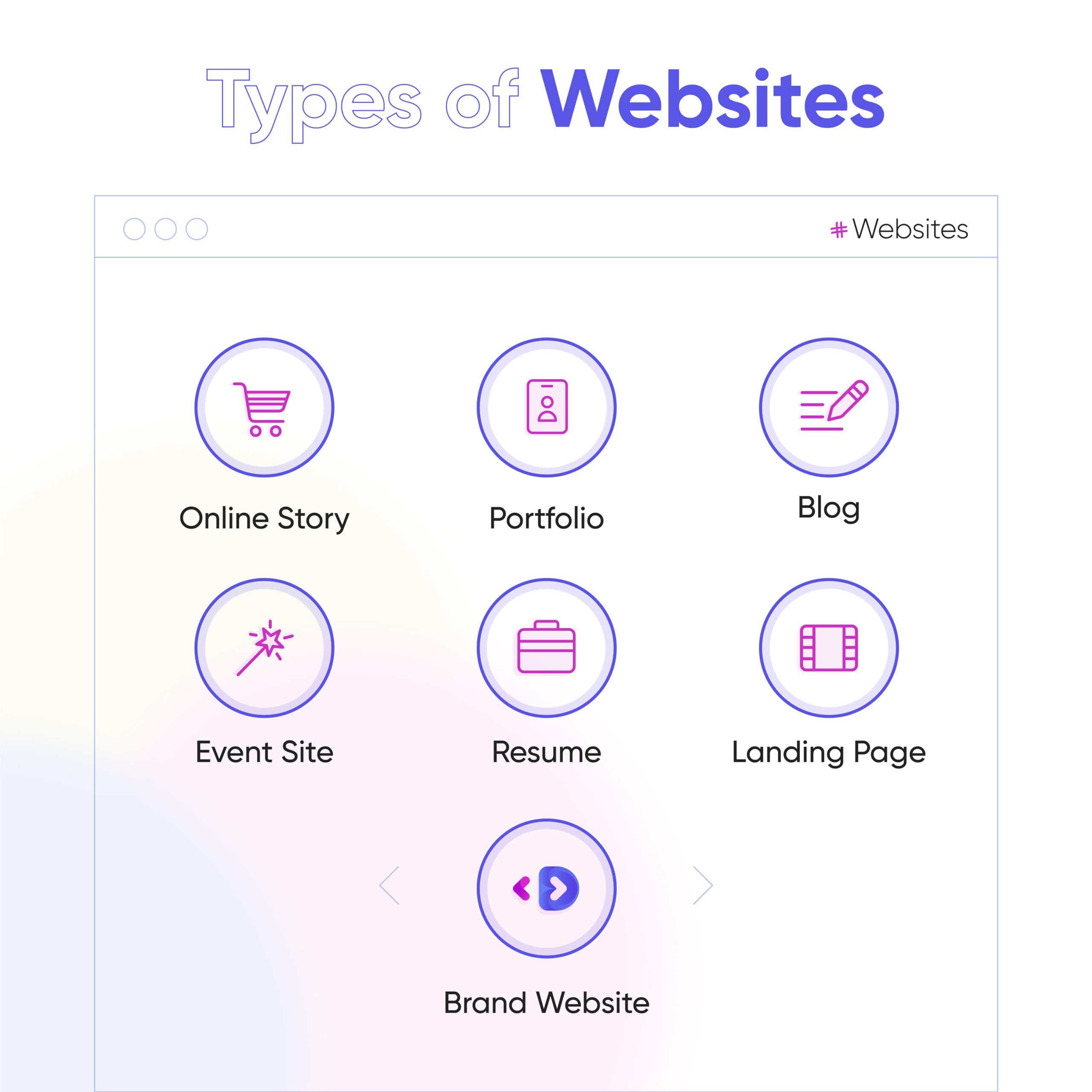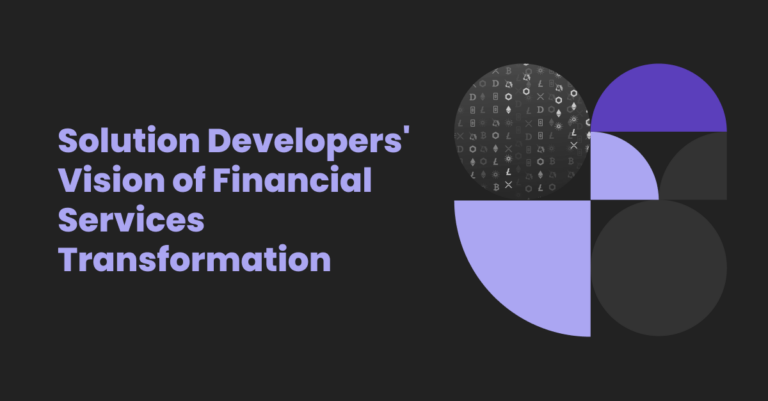Whether you privately train dogs or own a big company importing alcohol – today, your business has to create an online presence to survive and make a profit. A company site is no longer a luxury available only to fancy, famous brands; it’s become a necessary part of any business development.
As of January 2019, there were 1,518,207,412 websites globally compared to 861,379,152 in January 2014.
Moreover, it’s not enough to just have any site. You need to choose its type correctly, think through the content strategy, and invest in great design and functionality. After all, 44% of visitors will leave a company’s website if the page provides no contact information like an email address or a phone number – and, what’s more, 40% will leave if the site takes longer than three seconds to load.
There are many different types of websites, and choosing the correct one is the first step to creating a successful and effective online presence. Here’s an overview of the most popular formats and how they work.
Popular Website Types

Choosing a website type can be a more intricate task than it appears at first sight. Web developers consider the final product from different points of view: the site’s owner (a customer of a web development services vendor), the visitor (the site’s target audience), and the developer (from the site-building to tech support to site administration). In this case, even a simple website can represent several categories.
All pages on the Internet can be categorized by the following features:
- By implementation technology – HTML or CMS;
- By the main tasks – personal, social, commercial, etc.;
- By the type of access to information – open, requiring registration, and closed;
- By structure and content – landing pages, online stores, blogs, etc.;
- By content specifics – manuals, video hosting, catalogs, etc.
As you can see, one page can easily fall under several categories. Let’s have a closer look at the most popular types of websites right now.
- E-Commerce WebsitesFor the past decade, e-commerce pages have become one of the most sought-after types. They are launched to make a profit and encourage the visitors to spend money – to purchase a product or service, make an appointment, proceed to a paid consultation, etc. The main challenge here is making the correct call for action and provoking a target audience response.
89% of customers will choose a competitor after having a bad experience with an e-commerce site.
An online store is one of the most widespread types of e-commerce websites. They sell products alongside pictures and brief descriptions and, in most cases, offer delivery to the customer’s front door. These sites are available 24/7 and have no restrictions in size – your shop will grow as your business expands. Each registered customer gets a personal account with a purchase history, discounts, and bonuses.
Other e-commerce websites offer a potential customer to purchase services – it can be anything from finding a flat in a different city, hiring a repair person, or renting a limo for your wedding. Take a look on our offshore development services page , and our team will help wich your e-commerce website.
- Business WebsitesA corporate or business website is any site that represents a particular company or brand. This site should provide information about products or services offered by the company. The site’s appearance usually corresponds to the corporate style. Business website design uses corporate colors, fonts, and logos.It’s the most diverse type of site and has a complex structure. The website requirements vary depending on the business area, target audience, and company needs. However, some features are considered basic requirements like analytics, CRM integration, booking software, or live chat.Business pages usually have a few essential functions:
- Attracting new customers;
- Attracting new partners;
- Finding new employees;
- Getting customer feedback;
- Creating and maintaining brand image;
- Showing competitive advantage.
Building your company’s brand is no longer a privilege available only to large corporations. Today, small businesses launch their pages to reinforce the overall marketing strategy and expand their online presence on local and global markets and our leading offshore team would be a partner in developing your business website.
- Entertainment WebsitesEntertainment is one of the biggest industries worldwide. It generates colossal revenue and continuously expands with the development of new technologies. It’s no wonder that many companies and individuals choose to invest in entertainment websites.
Such pages aim to entertain their visitors – whether it’s with audio or visual content or interactive services. The content usually includes articles on trending topics, sad or funny stories, horoscopes, celebrity news and gossip, etc. It’s all wrapped in vivid graphics and topped with catchy headlines to attract large numbers of visitors.
The most effective way to monetize such a project is to place advertising. Banner and contextual advertising prove to work best here. That’s why if you decided to start an entertaining website, you need to be particular about its content and aware of the latest trends – to keep your site on top and engage visitors.
Entertainment sites are usually large and complex projects with specific features. For example, it’s one of the few types of websites where flashy animation is appropriate. However, it also means extra budget allowance is necessary for visual effects specialists if you want to make a high-quality product.
- Informational WebsitesIt’s another very common website type that sometimes overlaps with entertainment platforms. The main goal of informational websites is to provide necessary information to interested people. With an effective promotion strategy, such projects have great prospects for monetization. However, these platforms’ main task is to provide high-quality content covering various fields – from business and technology to pop culture fandoms.
If these sites develop systematically, they grow successfully (look at Wikipedia) and acquire a fairly complex structure with a significant number of sub-sections. As a result, you’ll have forums, chat rooms, and other means of communication to create and maintain your loyal community.
This type can be an umbrella term and include other definitions and points of view. For example, your company can start a business informational website to create expert content in your niche. It would help to generate potential leads and work on partner connections. News sites and educational platforms are sometimes also included in this group, as their main purpose is to provide information.
- Blogs
A blog is an online resource with regularly updated content (text entries, images, or audio and visual content). Typically, a blog is run by an individual or a small group of people. Blogs can cover any topic but often use an informal or conversational style. In the past years, the popularity of professional blogs has increased significantly.Every day, more than 5,760,000 blog posts are published on the Internet.The monetization of blogs can bring in a decent income. Bloggers need to publish relevant, useful, or, sometimes, viral content regularly. Once reaching a certain number of followers, it’s possible to set your income with advertising. Famous brands pay for the promotion of their products or services on blogs with large audiences.
Personal blogs are no exception, and quite often, people successfully develop their own blogs into personal brands and receive the “influencer” status.
Company blogs are among other popular types of web pages. They are usually included in the company’s website and play an important role in the marketing strategy, as they help generate leads, attract customers, and increase the company’s online presence.
- Portfolio WebsitesA portfolio website is an Internet page designed to showcase examples of works and will be useful to any author aspiring to express themselves or find customers and business partners. Portfolios are essential for copywriters, artists, designers, photographers, and other creative professionals.
However, this type does not entirely belong to individual freelancers. A company portfolio has become a more widespread practice. It has the same underlying principle but a larger scale and a different target audience.
- Brochure WebsitesA brochure website is a simplified version of a business site. It’s a budget option for smaller brands that need to create an online presence but are not ready to invest in a full-fledged business page yet.
Usually, such sites consist of a few pages briefly informing a potential customer of the company, products, or services and providing contact information – email, phone numbers, locations, links to social networks, etc. Most brochure pages are rather static and not updated regularly.
Creating Your Own Website
There are a few ways to create your own website. Depending on the budget or, sometimes, free time and a desire to learn, anyone can find the best fit.
- CMS
CMS stands for a Content Management System (e.g., WordPress, Drupal). These platforms allow you to publish your content using ready-made modules, themes, and plugins. You don’t need any programming skills to launch your first website. You may have to invest some time reading why Drupal vs. WordPress is a trending topic, but you shouldn’t dismiss this idea.
- Website Builders
These systems are similar to CMS – you also don’t have to worry about how they actually work behind the scenes. But here, you use the web hosting company’s site builder and can only use their proprietary tools to create a page on their platform.
- Professional Web Development
It’s an option for large businesses with big budgets and a lack of time. Outsourcing the entire project may seem the easiest way. However, it’s the most expensive way. The prices may vary in different circumstances: Linux Vs. Windows operating system, using frameworks vs. writing the code from scratch, and other factors.
Note. Choosing the right option from different types of websites and building your page is only a starting point. Search engine optimization practices make it work – rank higher in Google, generate leads, and increase conversion. Most experts suggest engaging professional SEO Services even during your site’s building stage.
Conclusion
Different types of websites provide great opportunities for many companies. You can choose the right fit for your project depending on your goals and budget. This variety also brings flexibility if you can’t narrow it down to one category. Besides, nowadays, you can monetize almost any type of site if you do it right. Think of forum websites like Reddit or Quora.
And if you feel completely lost starting the process by yourself, a professional Custom Software Development company that works on web development solutions can become your lifesaver in this complex yet exciting adventure.
















